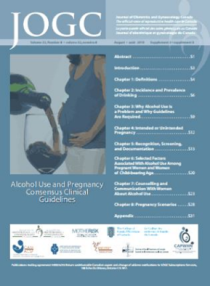3rd in Series: First-ever FASD Prevention Plenary at the 7th International Conference on FASD: PART 2
“International Research on Discussing Alcohol with Women and Their Partners, and Empowering Professionals to Have These Conversations”
Participants:
Tatiana Balachova, PhD, Associate Professor, University of Oklahoma Health Sciences Center & Prevent FAS Research Group; Jocelynn Cook, Chief Scientific Officer for The Society of Obstetricians and Gynaecologists; Lisa Schölin, Consultant at WHO Regional Office for Europe – Alcohol, Illicit Drugs and Prison Health; Leana Oliver, CEO of FARR; Cheryl Tan, Health Scientist CDC
Research shows that building awareness and offering brief interventions can help women reduce alcohol-exposed pregnancies. For a variety of reasons, not all providers feel comfortable or confident in giving information or asking about alcohol use, and they may not be sure it makes a difference in preventing alcohol-exposed pregnancies. Consequently, researchers from around the world presented their findings at the 7thInternational FASD Conference Prevention Plenary. They discussed whether or not brief interventions work, and if they do, then which strategies work best.
 Russia – Positive Messaging Improves Knowledge and Action
Russia – Positive Messaging Improves Knowledge and Action
Tatiana Balachova, PhD, and her research group conducted a 3-part study to develop, implement, and test a prevention program in Russia. They found that women in Russia most trusted their OB/GYN physicians, so they developed FASD educational materials and trained physicians to deliver prevention information in two face-to-face structured interventions. FASD brochures using positive messages and images improved women’s knowledge of FASD and reduced risk for alcohol-exposed pregnancies. As well, they found that women who received the intervention reduced their frequency of alcohol use – most quitting – during in pregnancy.
 Canada – Care/Service Provider Education is key
Canada – Care/Service Provider Education is key
Jocelynn Cook, Chief Scientific Officer for The Society of Obstetricians and Gynaecologists of Canada (SOGC) detailed the Vision 2020 strategies: advocacy, quality of care, education, and growing stronger. These strategies underpin their goals for care providers to focus on preconception as well as pregnancy, and deliver consistent messaging. In line with these goals. Alcohol Use and Pregnancy Consensus Clinical Guidelines that were first published by the SOGC in August 2010 were updated in 2016. The guidelines highlight the value of brief interventions and will be supported in the coming year with online education and training that recognizes “red flags” and provide best practices for supporting women’s health and engagement in discussions on potentially stigmatizing topics such as alcohol use.
 World Health Organization – Prevalence Rates Inform Strategy
World Health Organization – Prevalence Rates Inform Strategy
Lisa Schӧlin, consultant with the World Health Organization’s European office, described the data from Europe on alcohol consumption and drinking during pregnancy. The most recent prevalence data shows that Europe has the highest consumption rate of alcohol per capita of anywhere else in the world. As well, at 25.2%, it has the highest rate of alcohol consumption during pregnancy and the highest rate of FAS (37.4 per 10,000). These data were published in a review of the evidence and case studies illustrating good practices and areas of European action called “Prevention of harm caused by alcohol exposure in pregnancy” – you can view or download here.
 South Africa – Short Messages Can Build Awareness
South Africa – Short Messages Can Build Awareness
Leana Oliver, CEO of Foundation for Alcohol Related Research (FARR), explained how FARR builds upon existing health services by providing prenatal support, pregnancy planning and teaching of coping strategies to women through their programmes. Their “Do you have 3 Minutes?” campaign has been successful in building awareness within communities and in supporting prevention programmes (learn more here). As well, the FARR Training Academy offers accredited trainings and continued professional development on FASD to professionals, providers and educators. Research projects and FARR publications detail what has been learned such as the benefits of motivational interviewing and the need for preconception care and planning.
 U.S. – Promoting Universal Screening and Brief Intervention
U.S. – Promoting Universal Screening and Brief Intervention
Cheryl Tan, Health Scientist, Centers for Disease Control and Prevention reviewed FASD activities currently underway. Surveillance of alcohol consumption by women of reproductive age is ongoing alongside efforts by the CDC to promote universal screening and brief interventions (aSBI) of adults 18+ years. She noted the wide discrepancy between how often providers say they conduct SBI (85%) and how often patients say they receive it (25%). As well, as a partner of the Collaborative of Alcohol-free Pregnancy, the CDC is helping to change healthcare practice through high-impact projects: 1) implement interprofessional model for prevention of AEP; 2) provide evidence for aSBI to insurers in the US; and, 3) reduce stigma associated with drinking during pregnancy.
Retrieved from: https://wordpress.com/read/feeds/2380007/posts/1431418122


Reblogged this on Edmonton and area Fetal Alcohol Network Society.